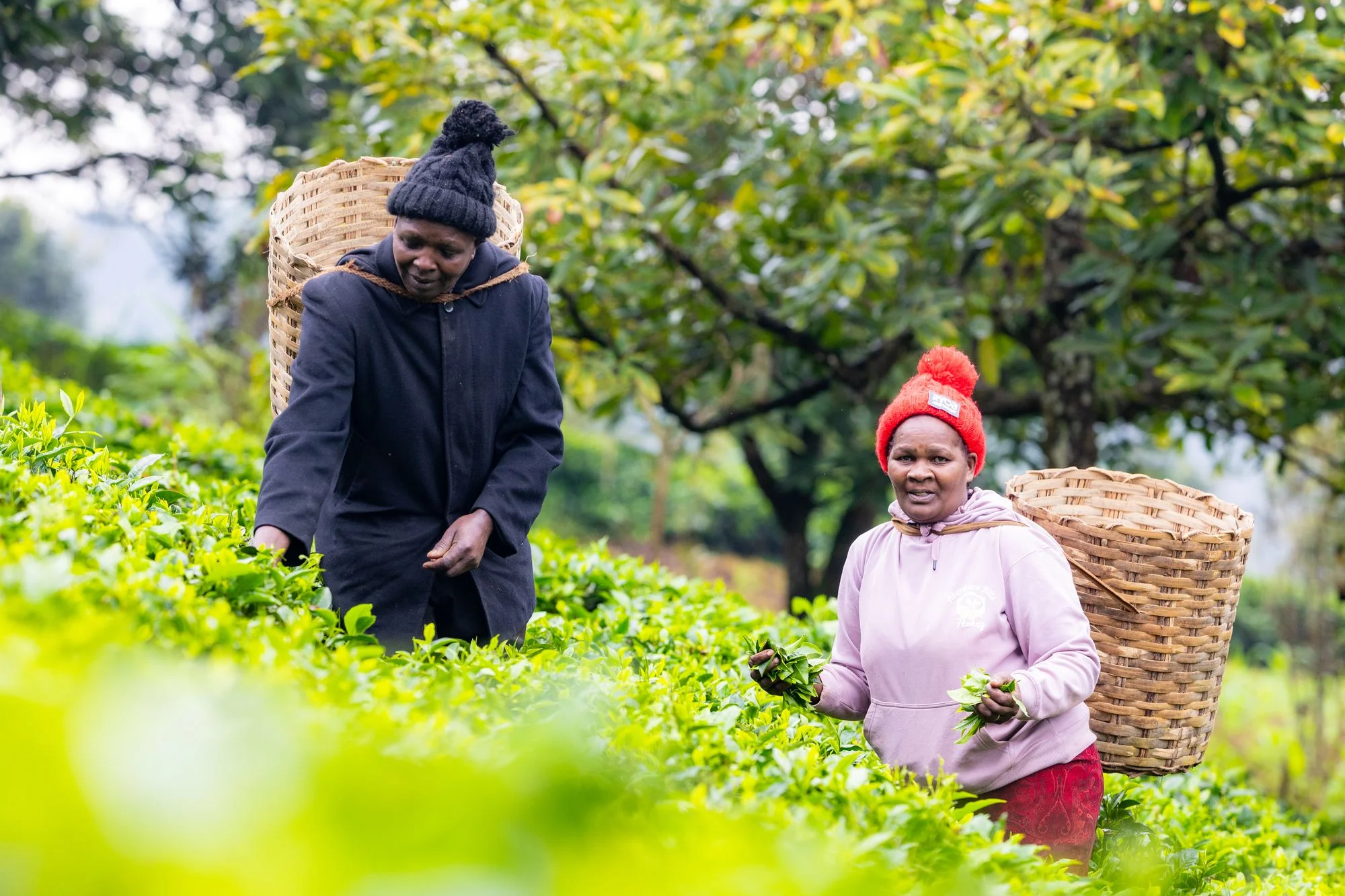By Nick Ferris
Copyright independent

Early each morning, 62-year-old Francis and his 56-year-old wife Teresiah walk from their home along a short dirt track to their patch of farmland, which lies on a precipitously steep stretch of hillside in Kenya’s central highlands.
Here, they will spend the day picking two leaves and a bud of bright green tea from their crop of tea bushes until the baskets on their backs are full – which they then empty into a sack ready to be sold, before repeating the process over and again until sundown.
Francis and Teresiah are just two of the estimated 600,000 smallholder tea farmers in Kenya who contribute to a crop that supplies around half of the tea we drink in the UK. It’s a tough, monotonous job that typically pays far below the living wage, one that the couple has worked for the best part of three decades.
Recently, extreme weather, driven by the climate crisis, has hit production volumes. Both drought conditions that dry out their tea bushes and extreme cold: “In recent times it has been colder than we have ever seen it, with even snow falling on some days,” explains Teresiah. Such weather has resulted in tea bushes growing more slowly than usual, and other crops grown in their vegetable patch dying back.
Heading out to pluck tea in those conditions is also taking a toll on the couple’s health. The cold in particular leaving them both with respiratory problems at times, and issues with their joints. “We can take medicine for the joint pains, which helps the pain to subside for a time, but it then comes back,” says Teresiah.
Declining tea yields have reduced their ability to pay for the medicine the couple need. Last year, they were able to make 135,000 Kenyan Shillings from tea production, and a further 130,000 Shillings from honey and avocado production, which is the equivalent to around £1,500. The average salary across Kenya is about double that. Given the couple have 12 further family members – including five children and seven grandchildren – that is equivalent to only around 35p per person per day from the farm.
Across the whole Gatanguru Tea Factory – which is the 8,000-member-strong tea farmer cooperative to which Francis and Teresiah belong – extreme weather caused production to fall from 24 million tonnes of tea in 2023/4 to 17 million tonnes of tea in 2024/5, according to factory manager Nancy Githaiga. The factory supplies tea to major UK tea brands according to their suppliers list.
“This climate problem is really major for us. I believe that if things continue the way they are, the very existence of tea farming in this area will be threatened,” Nancy previously told The Independent.
The struggle to make ends meet is nothing new for Francis and Teresiah. “We can afford enough food, but at times we have had to take out loans to pay for education,” says Teresiah. “Three years ago, we had to sell our cow, which meant we could not consume milk, and also reduced our income even further.”
However, the particularly acute financial pressures that have been felt by many farmers have not been helped by recent reforms to Kenya’s National Health Insuance Scheme, experts have told The Independent
Introduced in 2023, the scheme has had “a lot of teething problems”, says one community health officer in Kenya’s highlands, who spoke to The Independent on condition of anonymity. Those “teething problems” include “unclear information” for community members around referrals, as well as medicine supply chain problems. “It remains a work in progress”, the healthcare officer says.
Numerous tea farmers interviewed by The Independent said that their local dispensary is often closed, or low on medicines, resulting in them having to purchase medicines privately if they want treatment.
“Nowadays when we go to the dispensary, we are told they do not have medicine, or that we need cash to pay for the treatment that we require,” says Luke Wahome, a tea farmer in the Iriaini Tea Factory that neighbours Gatunguru.
“Most of the time when I go to the dispensary I am told there is no medicine there, whether we are registered with SHIF [the national health insurance scheme] or not,” adds Evaline Cherugut, from another tea factory, Momul. “Nothing has improved since the scheme was introduced.”
Kenya’s Ministry of Health has been approached for comment on these claims by.
For Francis, the health worries have reached such a point that funding healthcare is now the top priority for him. “If I get more money, the priority will be to buy a medical cover to make sure that we are insured,” he says. “Next priority is to build a bigger house.”
The healthcare challenges felt by tea farmers is set against a backdrop of aid cuts – particularly from Donald Trump in the US – that have devastated Kenya’s national healthcare system, disrupting essential services like malaria prevention and HIV treatment, and leading to medicine shortages in some areas.
Before the closure of the the United States Agency for International Development (USAID), some 41,500 health workers – or around 18 percent of the total health care workforce in Kenya – were paid for by USAID. Between 2020 and 2025, USAID committed around $2.5 billion (£1.85bn) in foreign assistance to Kenya, with 80 per cent of that total directed towards healthcare, according to non-profit Physicians for Human Rights.
There are a few glimmers of hope for tea farmers facing health problems in Kenya, but none offer a clear pathway to tackling family healthcare as climate change bites.
A tea worker-specific health insurance scheme that was piloted in Gatanguru under Nancy’s leadership has been expanded across the country, with the aim of filling the gap left by the national health scheme. It covers ailments experienced by tea farmers and family members under 18 – but even its champions admit it fails to address the healthcare problem.
“We introduced the scheme because the national system is not working – but it is only voluntary,” explains Nancy. “If you are a farmer who needs that money for food, it is likely you will not want to give that money to the scheme.”
According to Luke at Iriaini Tea Factory, sales of tea under the ‘Fairtrade’ mark can also be a crucial means of supporting his family’s health. Fairtrade sales include an additional ‘Premium’ payment in every sale, which the tea co-operative is then able to direct towards community schemes including around education and healthcare.
But the ability of this income to make a different is limited by the fact that very few tea sales are actually to Fairtrade brands. Despite the UK representing 60 per cent of the global Fairtrade tea market, only 10 per cent of UK tea sales are actually Fairtrade. In Iriaini Tea Factory specifically, currently less than one per cent of its tea is sold as Fairtrade, despite the fact that 100 per cent of the tea produced is of the standard that qualifies for the label.
“When the sales of Fairtrade were more, we would get a bit more money, and we could take care of the family health,” says Luke, who also said he had experienced problems with his joints from the cold. “We would love buyers to buy more Fairtrade.”
For Francis back at Gatanguru, his biggest hope is for the younger generation of his family to receive a good education so that they can ultimately leave the tea industry. He sees that the climate problem is likely only to worsen, and there are few other clear pathways forward out of their economic hardship.
“I would just love if [my children] could do something different,” he says. “Farming is just so difficult. There is so much struggle.”
This article was produced as part of The Independent’s Rethinking Global Aid project



